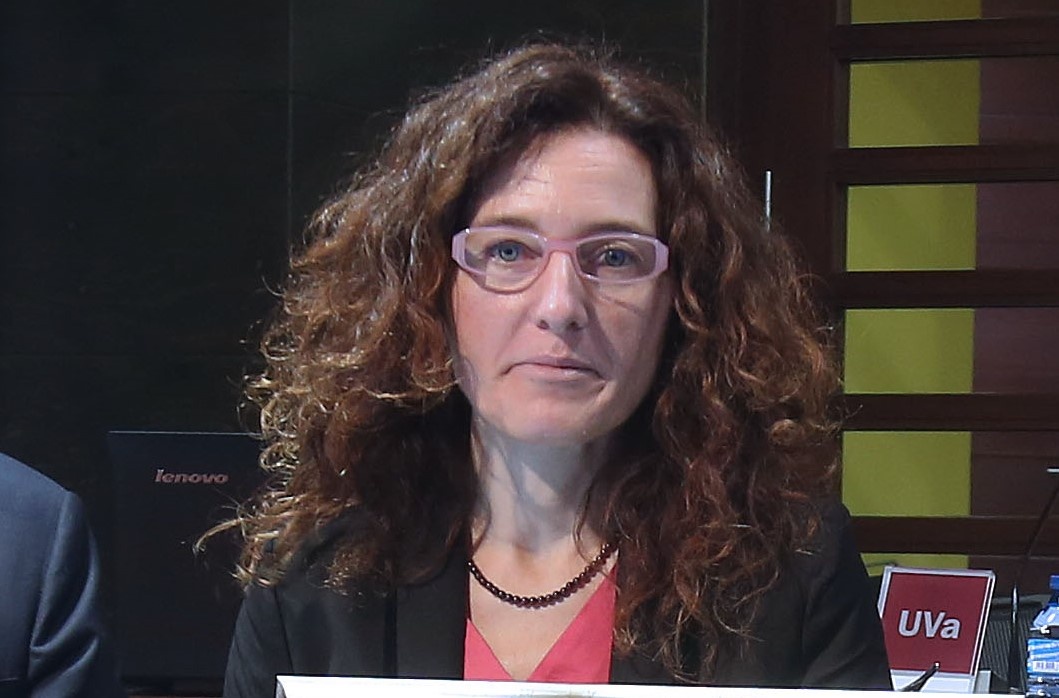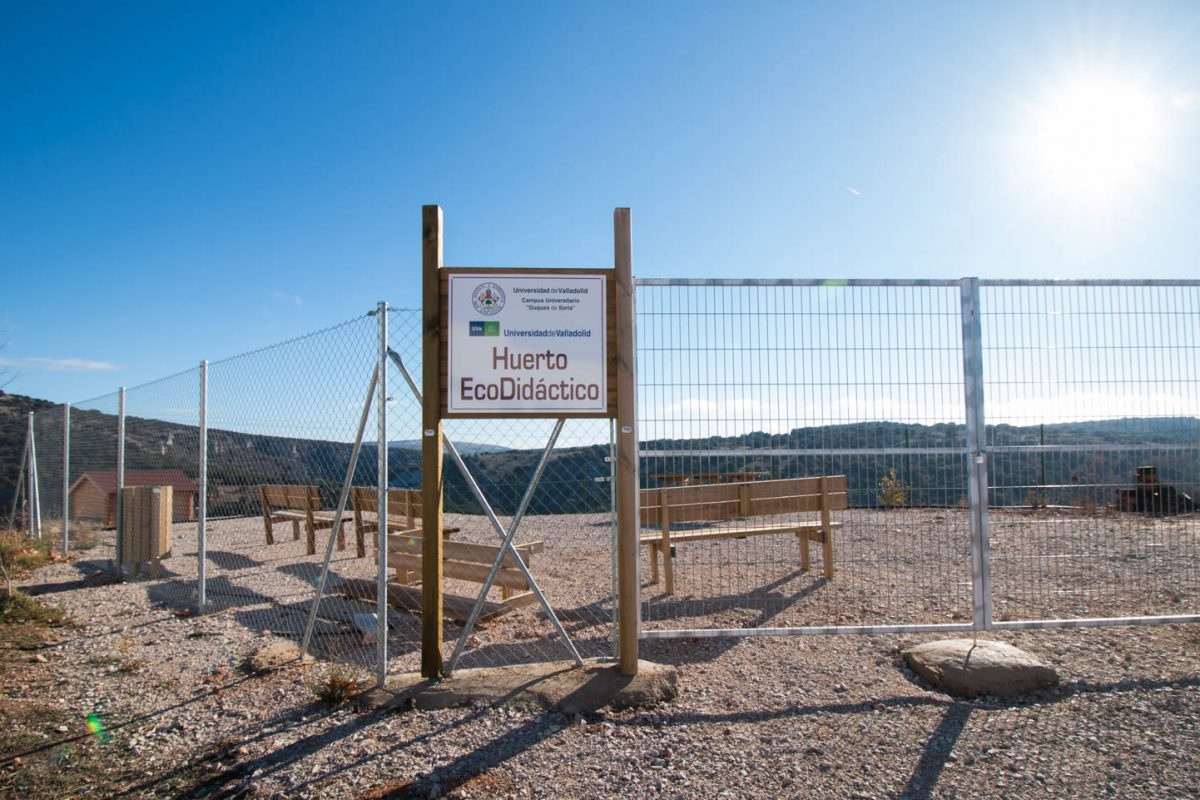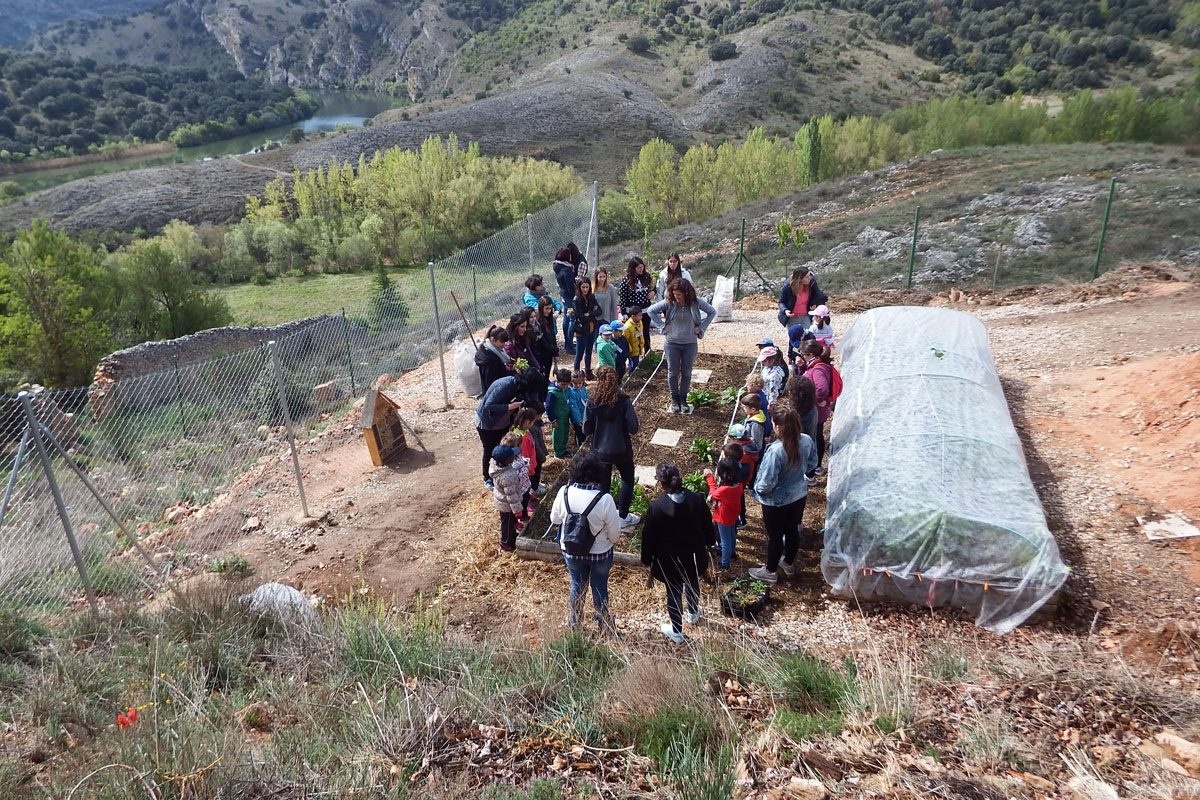The professor of the UVa, Marcia Eugenio, will give the next 5th of December a workshop about Eco-didactic Kitchen gardens in the Climate Summit
The University of Valladolid will take part as an actor in favor of climate in the 25th United Nations Framework Convention on Climate Change (COP25), which will be held from the 2nd to the 13th of December in Madrid with a presentation about the Eco-didactic Kitchen gardens as an education resource in regard to the climate change.
A project which since 2014 is developed by the professor of the Area of Didactics of Experimental Science, Marcia Eugenio Gonzalbo in the School of Education of the Campus of the UVa in Soria; and she will talk about it on the 5th of December from 12 to 12.45 pm in the Green Zone (Zone 1. Youth Meeting) from the IFEMA exhibition center, headquarters of the Summit
The workshop about Eco-didactic Kitchen Gardens of the UVa is one of the 500 events selected among more than 1400, which the civil society has presented for having a presence in this Summit. Within this Green Zone they have included seven zones: Sectoral Engagement for Climate Action, Agora, Civil Society, Innovation and science, Mare Nostrum, Pueblos Originarios (Indigenous Villages) and Young people, this last zone related to education and sensitization issues, and where the professor of the University of Valladolid will take part.
Marcia Eugenio will talk about the link between the use of kitchen gardens as education resources and climate change, something which as he claims “it is very clear, as the land management taught, based on permaculture and agroecology, implies soil fertility care (physics and chemistry). And their lands are the main carbon reservoir on the planet, following the first position, the oceans. For this reason, agricultural land management is relevant in the present context of climate change”.
Furthermore, she adds that “in the education kitchen gardens, we teach our students to muggle, compost, vermicompost, and avoid the biocides consumption. etc. This is a series of practices, make easier the functioning of the ecosystems and it means the transmission of values and the practical knowledge aligned with the sustainability”.
Nowadays the university kitchen garden´s space of the Campus of the UVa in Soria is being used by the students of Early Childhood and Primary Education as a living lab in which they learn contents and procedures of the Natural Sciences (Geology. Chemistry and Biology) entirely through active and collaborative strategies, and with which they could develop respect and natural environment conservation attitudes. The project was awarded in the year2017 with a secondary award of the Education Innovation Awards, which gives the Social Board of the University of Valladolid.
Gonzalbo will give this workshop in the Summit as the President of the Cultivated Universities Network (RUC by its abbreviation in Spanish, where she collaborates in the project of DIdadtics of Experimental Science with Ecodidadtic university Kitchen Gardens (HEDs by its abbreviation in Spanish), for the development of scientific skills of future teachers in Early Childhood and Primary Education.
Besides this project, they develop in this Network a project Organic Farming and another one about sovereignty, in which the Technical Superior School of Agricultural Engineering of the Campus of the UVa in Palencia takes part.
In this Network together with the University of Valladolid, nine Spanish universities collaborate, and also 12 university teachers of experimental science subjects in the Degrees of Early Childhood and Primary Education.
For those people interested in attending this workshop or another one in the Green Zone they have to enroll themselves at https://bit.ly/2RcaOxp


